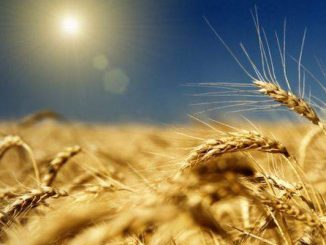
‘Zikr’ (Remembering Allah) and ‘Dua’ (supplication)
The sixth important thing to be observed in Ramadhan is Zikr and #supplication.
Zikr and supplication should be observed at all times in our life. What is Zikr?
Fulfilling any thing that Allah likes – whether it is done through heart or tongue or
limbs. In this sense, fasting is Zikr; staying hungry and thirsty for the sake of Allah is
Zikr. Recitation of Qur’an, especially in prayers, is a very high form of Zikr. In
Ramadhan, mere verbal Zikr, i.e. just repeating some specific words and
supplications, is also quite beneficial. It is a supplementary act of virtue but its
reward is that of obligatory acts. This keeps us away from slackness and focused on
attaining the blessings of Ramadhan.
Glorify Allah in words like Subhaan #Allaah (Glorified is Allah), Al-hamdu lillaah (All
praise is for Allah), La ilaaha illallaah (There is none worthy of worship but Allah),
Allahu Akbar (Allah is Greatest), Subhaan.Allahi wa.bi.hamdihi, Subhaan Allahil-
Azeem (Glorified is Allah and praised is He, Glorified is Allah the Most Great), Laa
hawla wa laa quwwata illa billah (There is no power and no might except with
Allah), Astaghfirullaah wa atoobu ilaihi (I seek forgiveness of Allah and turn to Him
in repentance), etc, all the time but especially and more frequently in the blessed
month of Ramadhan.
#Supplication is a form of #Zikr. The foundation of supplication is the belief that Allah
alone is the Owner and Master of all treasures of the universe, and everything we
want should be sought from His Mercy and bestowal. Supplication is one’s
admission of being poor and weak. That we should consider ourselves poor and
weak in front of Allah alone is the essence of our obedience to Him. Since every
moment of Ramadhan is auspicious and opportune, we should keep invoking His
mercy and asking for His bounties all the time. In Ramadhan, there are special
moments for acceptance of our supplications. Iftar (meals to break the fast in the
evening) time is one such moment – in which Allah’s mercy is ready to envelop us.
In this pursuit, try to seek Allah’s mercy more frequently in the first decade of
Ramadhan, His forgiveness in the second decade, and deliverance from hellfire in
the third decade. This is how Allah’s Prophet (pbuh) has described the special
attributes of the decades of the month of Ramadhan.36
Memorise a few words of Allah’s glorification, and verbalise them day and night
regularly. The #Prophet (pbuh) has specified certain supplications for different times
and circumstances, for the day and the night, along with the universally-relevant
ones. Make it a feature of your learning program that you would memorise some
from each category every Ramadhan.



